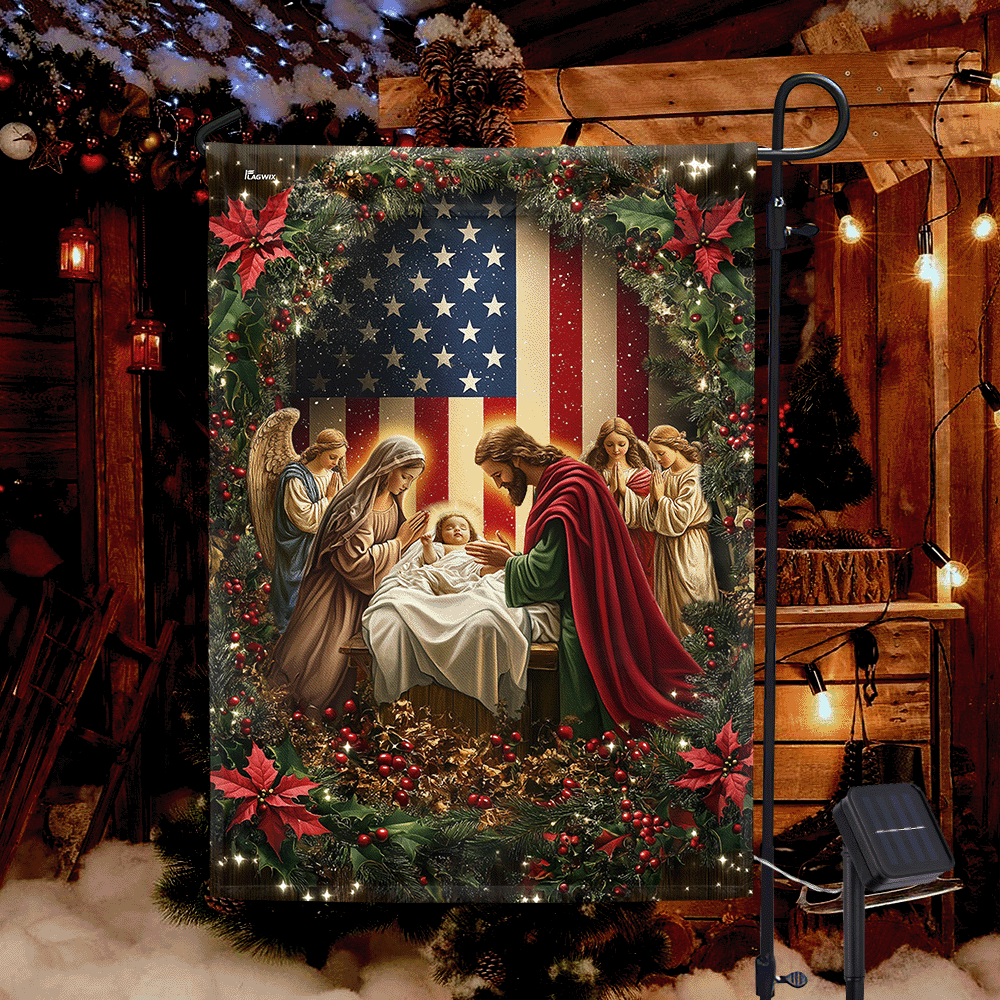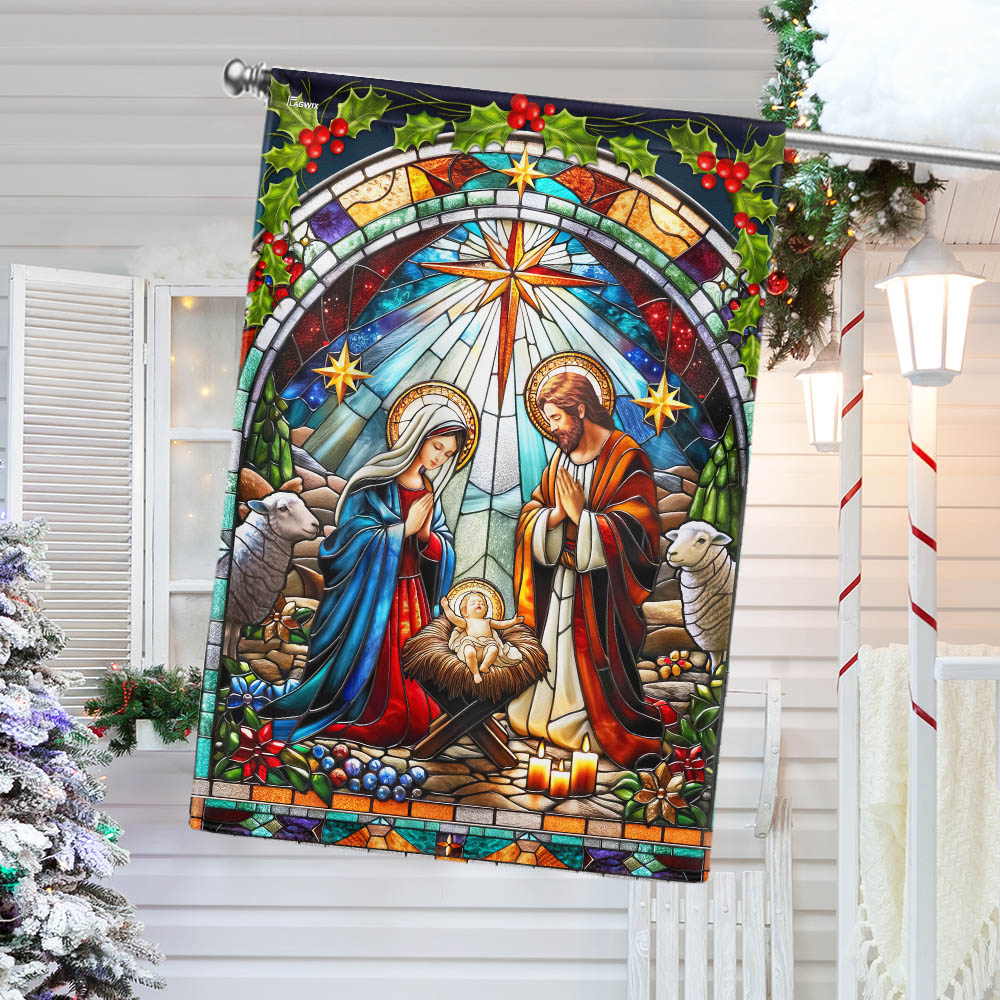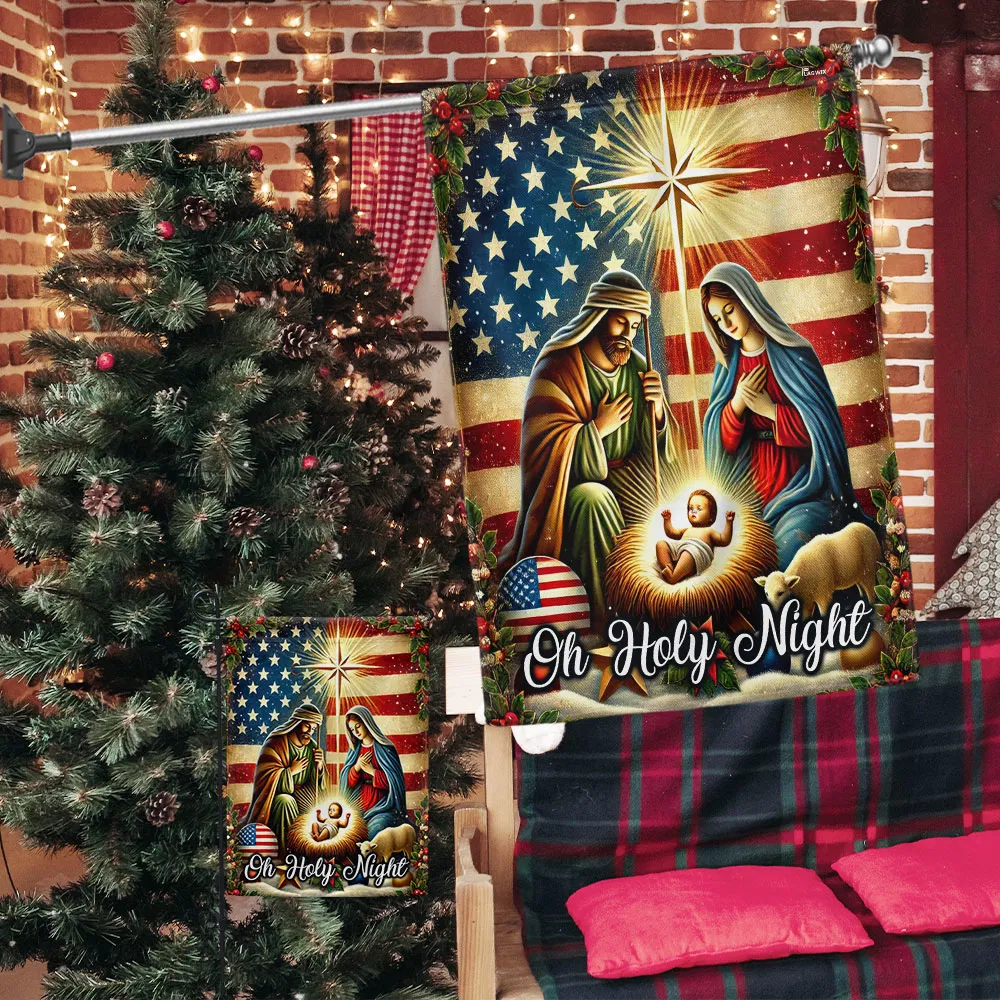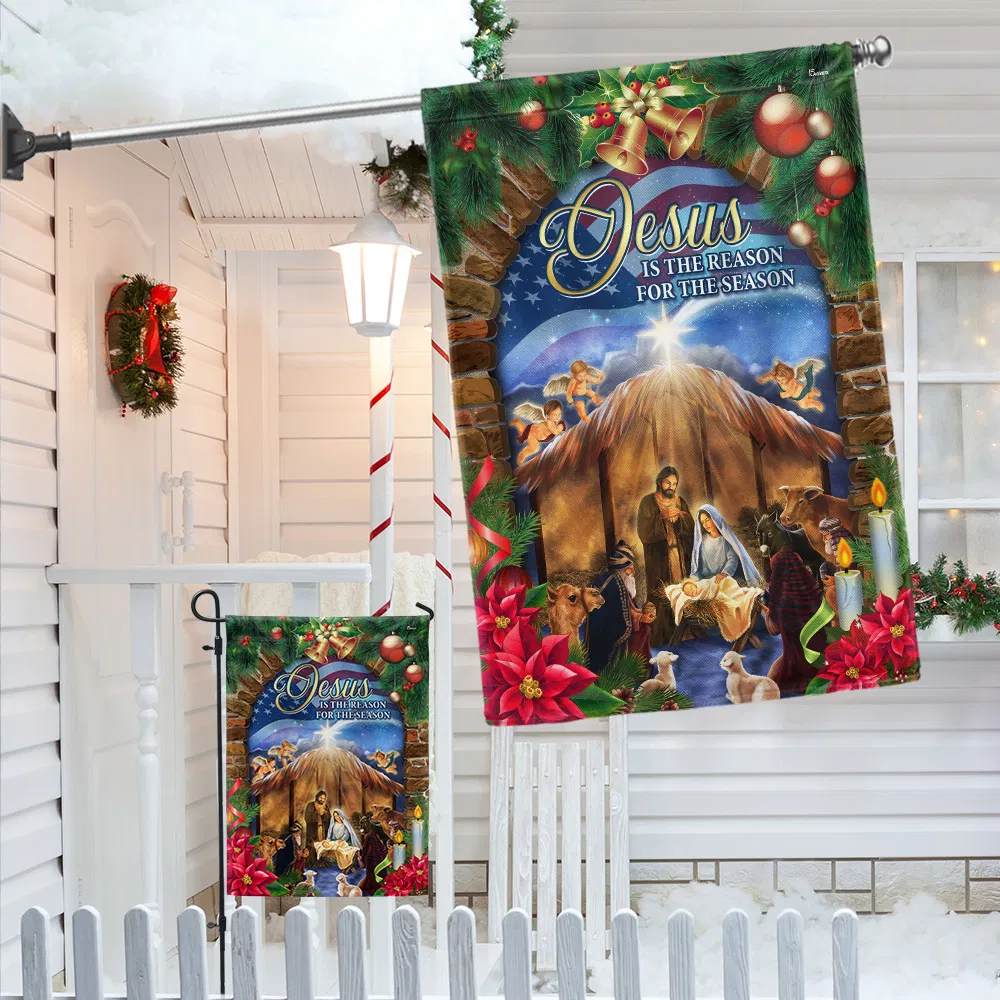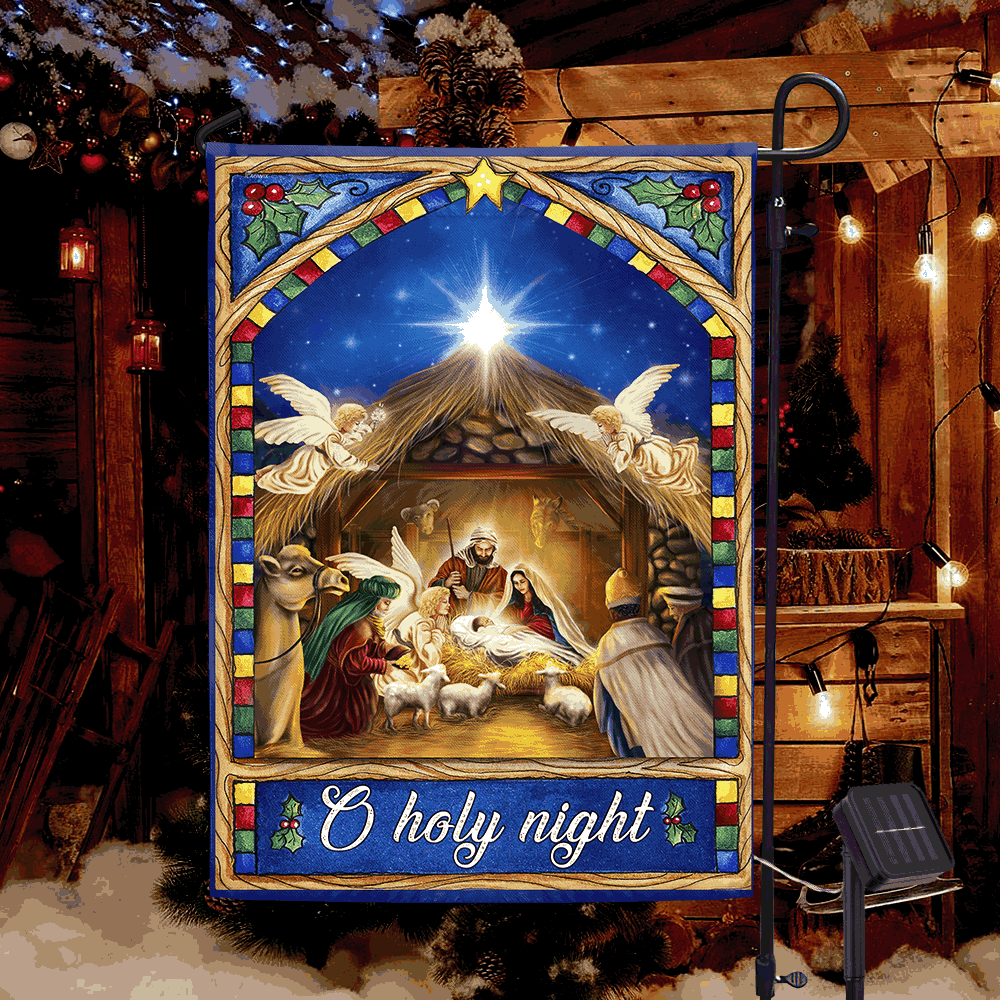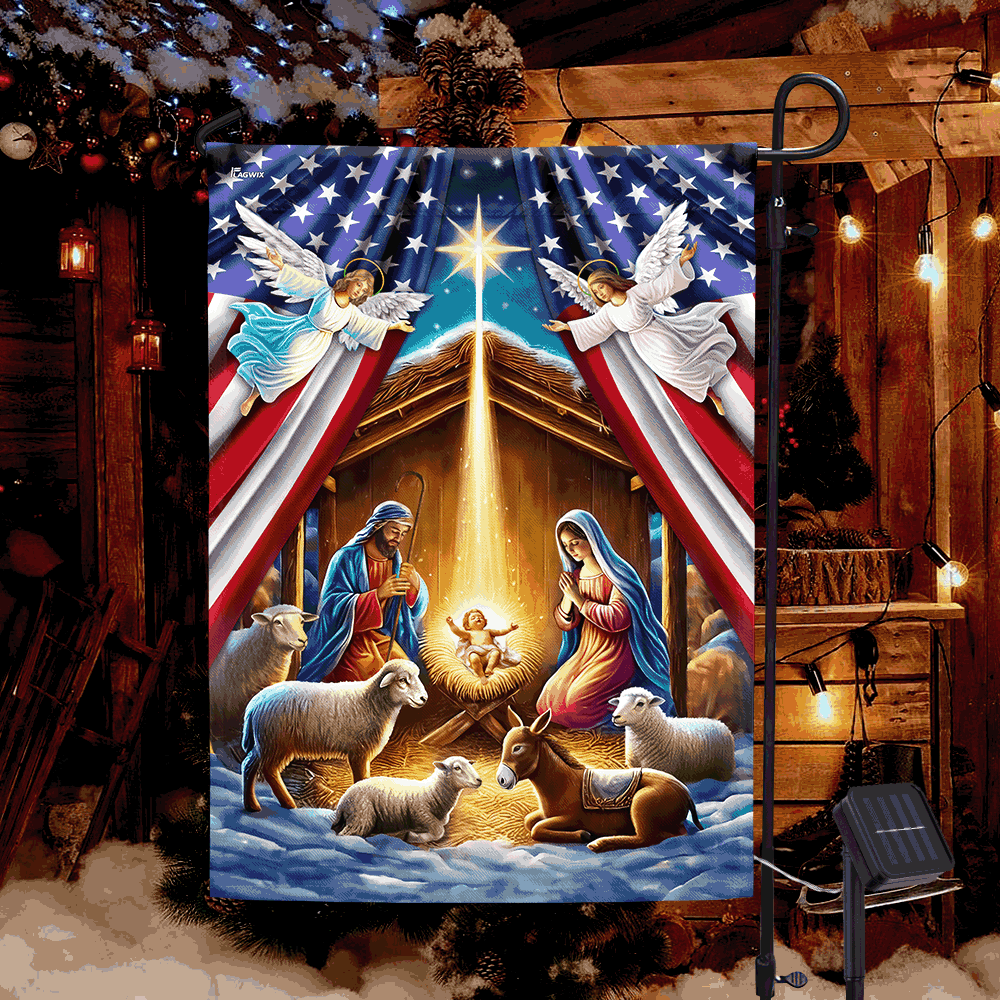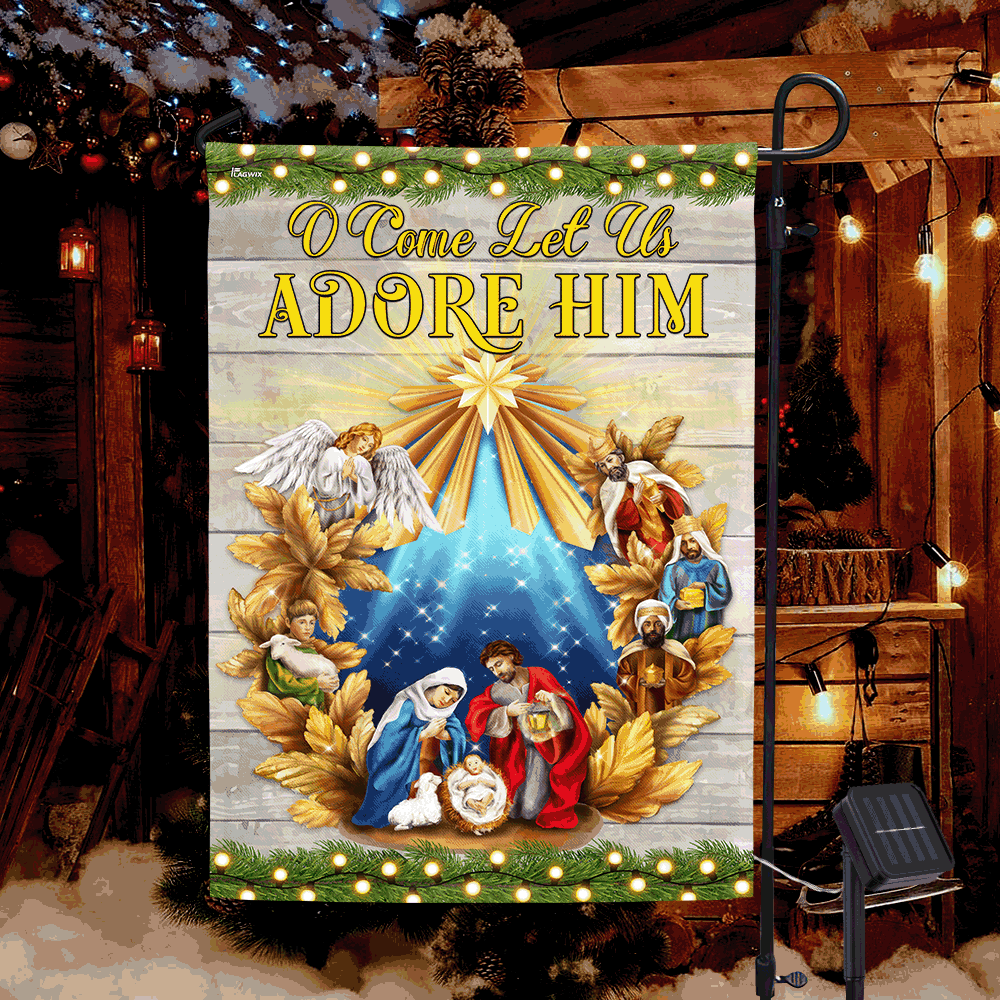The Nativity of Jesus marks one of the most sacred events in Christian history, symbolizing the birth of Christ as a divine intervention for humanity. Beyond its theological significance, this event has inspired centuries of art, culture, and tradition. In this blog, we explore the history and meaning of the Nativity of Jesus, delve into the origins of Christmas celebrations, and share creative ways to incorporate Nativity-themed decor into your holiday traditions.
In this year’s holiday, we will talk about the Nativity of Jesus—the birth of Jesus Nativity, a central moment in the Christian faith. Stay until the end of this post to see some best-sellers of Christmas Nativity of Jesus flags for decor from Flagwix.
As December and winter arrive, thoughts turn to Christmas traditions—Santa Claus, Christmas trees, and charming gift boxes. Yet, beyond the festive cheer, Christmas holds a profound religious significance, especially for Christians.
You might like:
Contents
The Nativity of Jesus and the Origin of Christmas
The Birth of Jesus in Bethlehem
Christmas is a holiday commemorating the Nativity of Jesus. According to Christian tradition, Jesus was born in Bethlehem, a small town in Judea, around 7 BC to AD 2. His birth, foretold by prophets and heralded by angels, represents hope, salvation, and God’s love for humanity. The humble setting of a manger, accompanied by shepherds and wise men, emphasizes themes of humility and divine purpose.
👉 Learn more about Christian flags 👈
The History and Evolution of Christmas
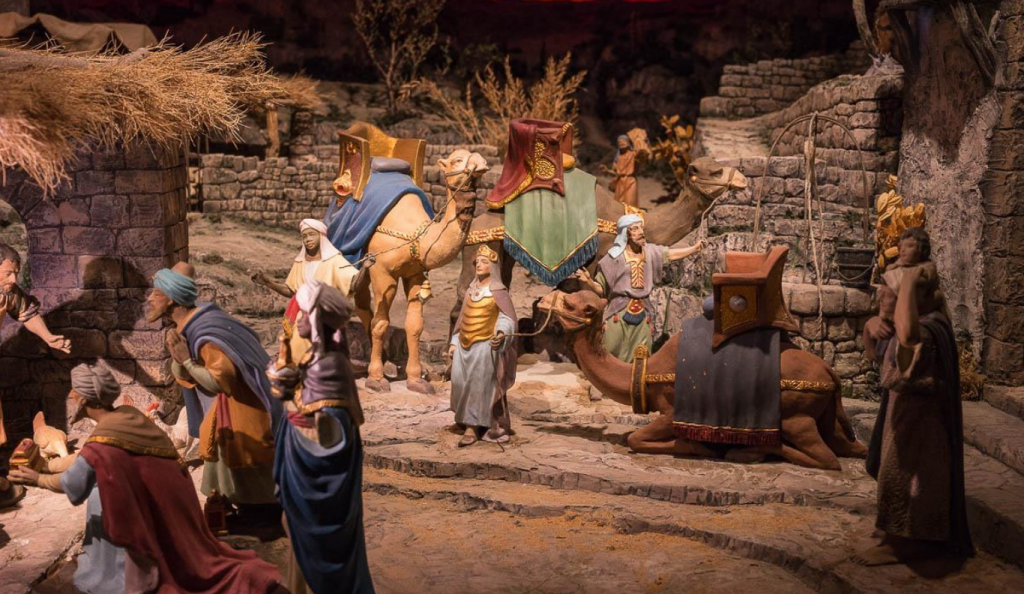
How Christmas Became a Celebration
In the early centuries of Christianity, Jesus’ birth wasn’t celebrated as a separate event. Birthdays were seen as pagan customs. However, by the fourth century, the Nativity of Jesus began to be observed annually. December 25 was chosen to coincide with the Roman festival of Sol Invictus, celebrating the “Unconquered Sun,” blending Christian worship with existing cultural practices.
- Pope Liberius: In 354, he officially declared December 25 as the celebration of Christ’s birth.
- Emperor Constantine: His conversion to Christianity in 312 played a key role in establishing Christmas as a widely recognized holiday.
The Evolution of Christmas Traditions
Over time, Christmas evolved into a season of joy, family gatherings, and generosity. Elements like the Christmas tree, Santa Claus, and gift-giving have become integral to modern celebrations. Despite these additions, the Nativity scene remains the heart of Christmas for many Christians, symbolizing the profound meaning of Christ’s birth.
In Christian liturgy, the four weeks before Christmas make Advent, a time of anticipation, while the period following Christmas is known as the Christmas season, traditionally lasting 12 days.
Try The top Christmas flag for flagpole to make your holiday stand out!
Why December 25?
The exact reason for choosing December 25 is still debated. Some scholars believe the date was chosen to align with the winter solstice, traditionally marked on December 25.
Others, like Isaac Newton, suggested it was meant to coincide with pagan winter festivals, making the holiday more accessible to new Christian converts.
The word “Christmas” combines two words: Christ and Mas. The term Christ originates from the Greek word “Χριστός” (Khrīstos), a title for Jesus meaning “the Anointed One.” Mas translates to “mass,” a Christian religious gathering.
Together, Christ and Mas create the word Christmas, symbolizing the feast of Christ, celebrating the Nativity of Jesus. Another common form, Xmas, also holds the same meaning. The “X” comes from the Greek letter chi (Χ), the first letter in Χριστός, representing Christ, with “Mas” added to complete Xmas.
Meaning of the Word Christmas
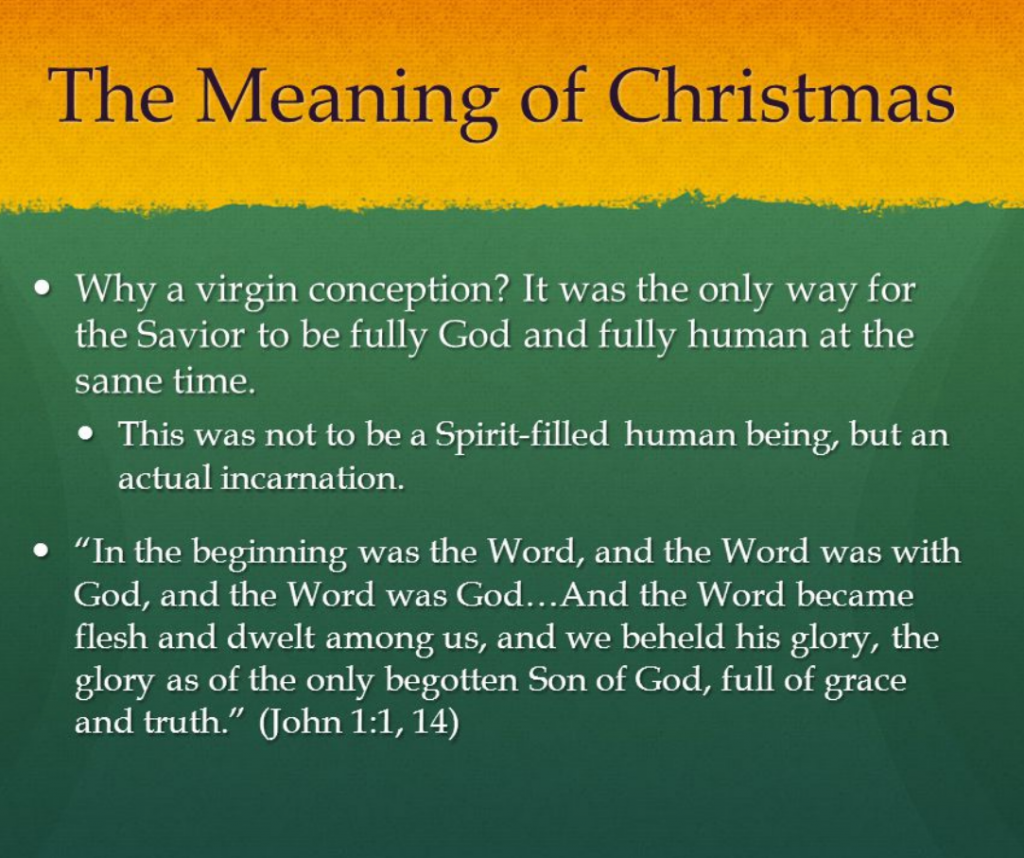
The Meaning of
the nativity of jesus
A Message of Hope and Salvation
The Nativity signifies the fulfillment of God’s promise to send a Savior to humanity. It serves as a reminder of hope, peace, and divine love, transcending cultural and national boundaries.
Universal Lessons
- Humility: Born in a manger, Jesus’ entry into the world emphasizes the value of humility and service.
- Faith and Devotion: The Nativity inspires believers to reflect on their faith and commitment to God’s teachings.
Beyond its Christian roots, celebrating the Nativity of Jesus, Christmas has become a special time for family gatherings and cherished memories. This holiday creates an opportunity for generations to come together, sharing laughter, stories, and a warm meal, often around a fireplace or Christmas tree. It’s a time of connection and love, helping families strengthen bonds and create lasting memories.
Children look forward to this holiday with great excitement, as their wishes often come true through the magic of Santa Claus and thoughtful gifts. Christmas also carries a universal message of peace: “Glory to God in the highest – Peace to men on earth.” This is the song sung by angels announcing the Nativity of Jesus—the birth of the Savior—emphasizing a spirit of goodwill and sharing with those in need, whether they are lonely, elderly, or in ill health.
Today, Christmas remains a time when Christians honor the Nativity of Jesus with the Nativity of the Lord Jesus Catholic church and ceremonies. However, Christmas is now embraced globally as a time to come together with friends and family, exchange gifts, decorate with Nativity Scenes of Jesus Garden Flag and Christmas wishes, and celebrate the season’s warmth and joy.

Come together with friends and family

Giving Christmas gifts
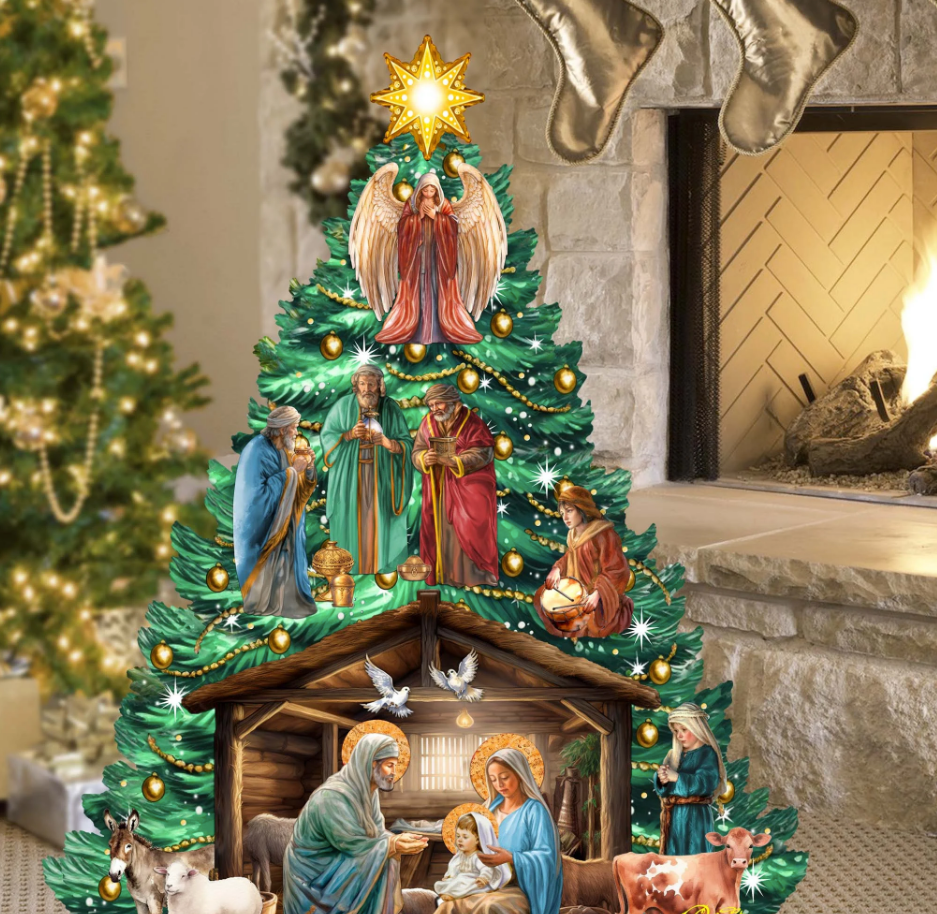
Christmas Nativity
decorate

Christmas in Family
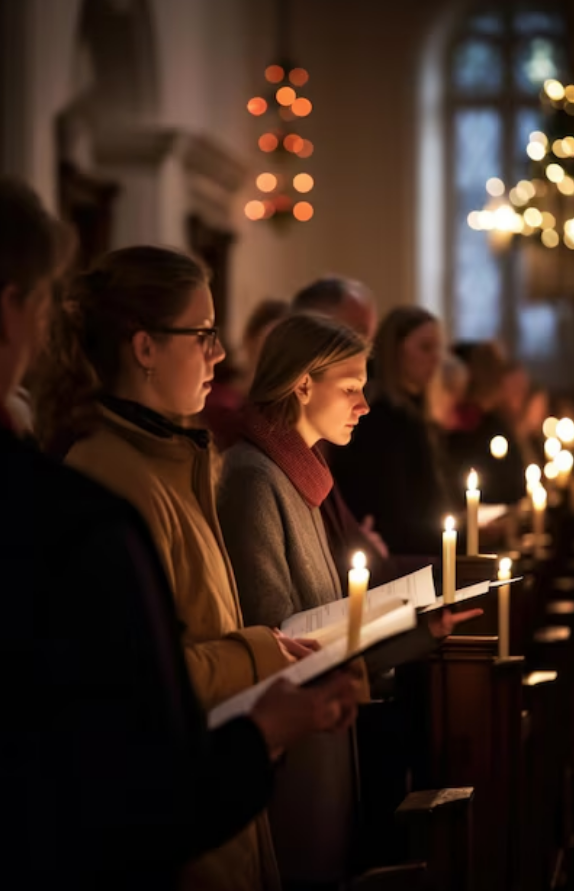
Christmas in church

Christmas House Decorate
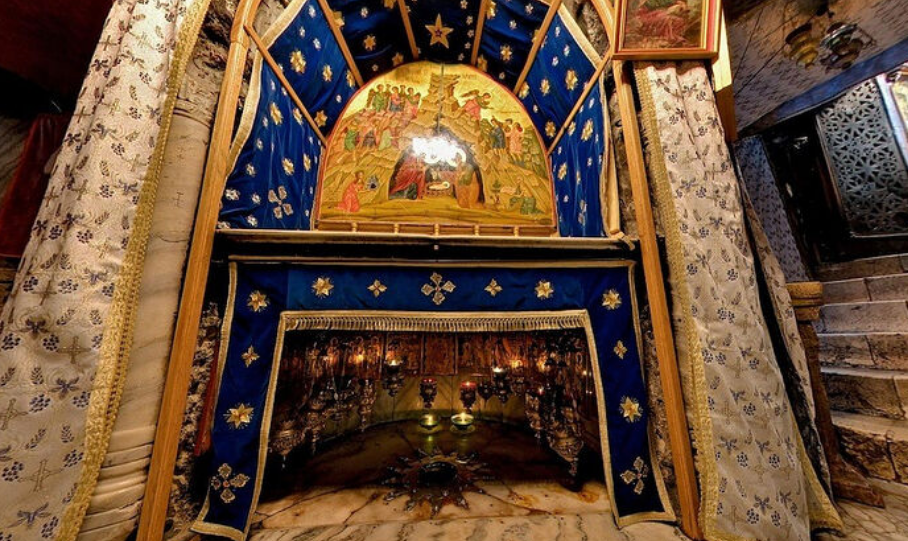
Exploring the Birthplace of Jesus
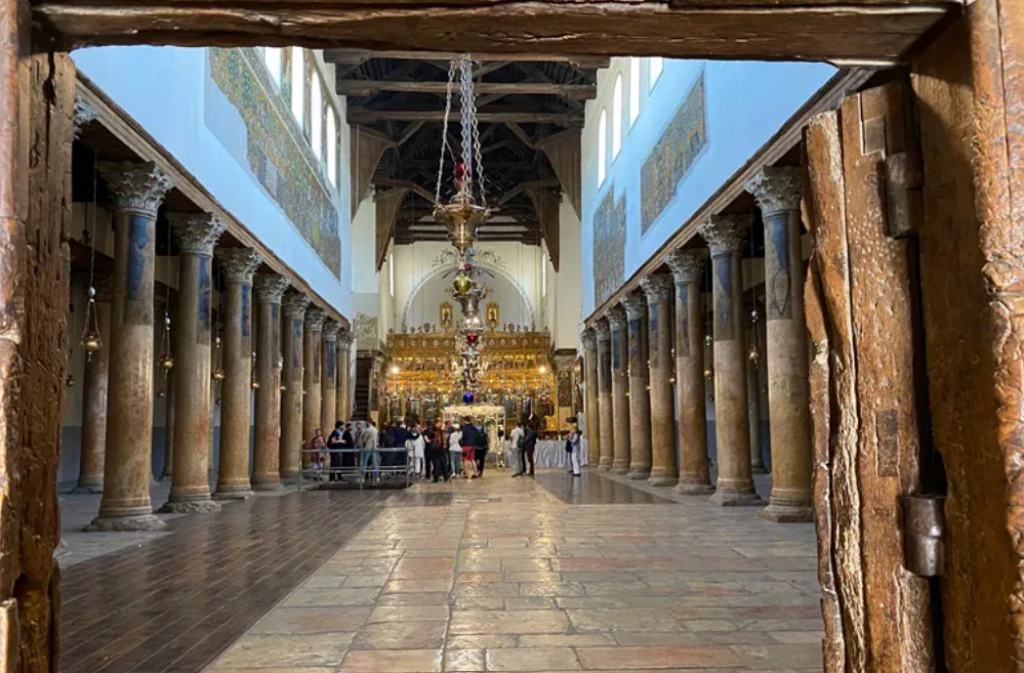
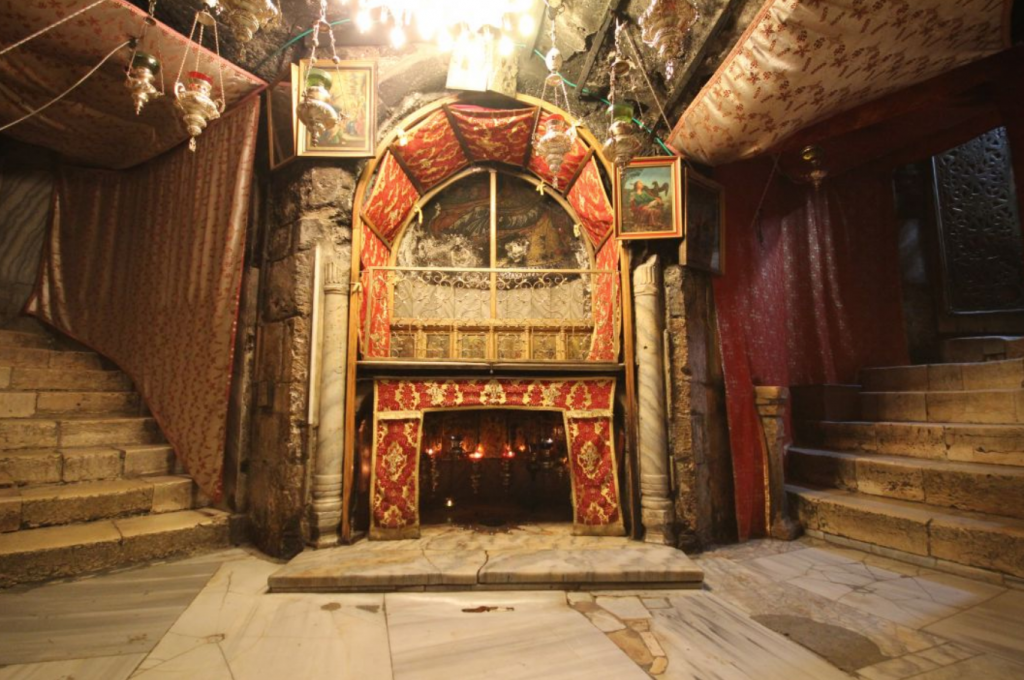
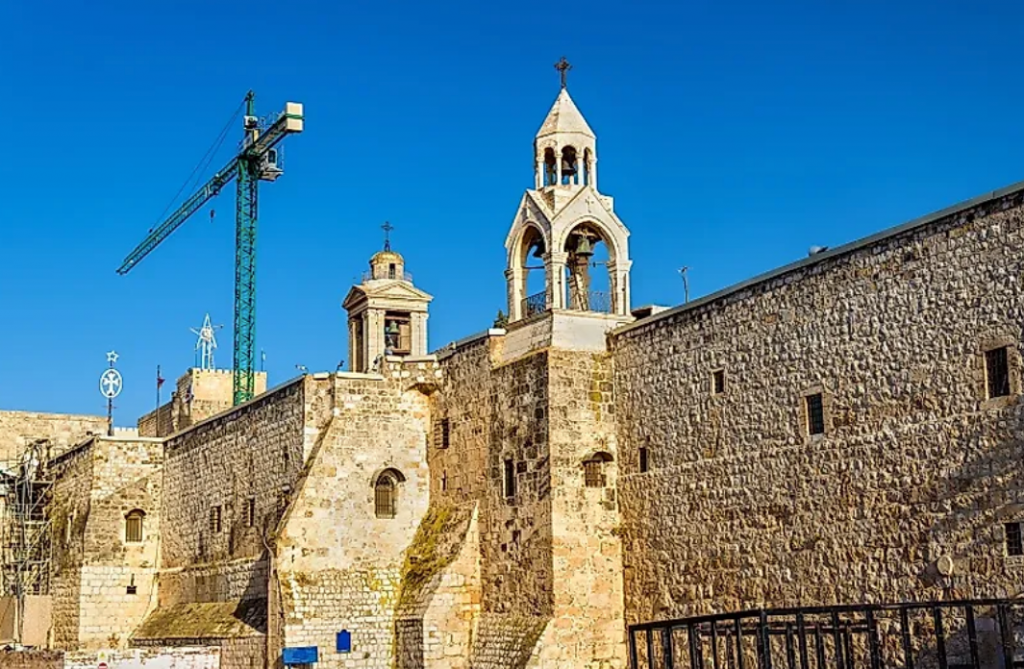
Bethlehem, located in modern-day Palestine, is revered as the birthplace of Jesus. The Church of the Nativity, built over a cave believed to be the manger site, stands as one of Christianity’s most sacred landmarks.
The birthplace of Jesus, known today as the Church of the Nativity, is one of Christianity’s most sacred sites. This revered location in Bethlehem marks where Jesus is believed to have been born and is a proud symbol for the Palestinian territory, expected to soon become a World Heritage Site.
Situated in the holy city of Bethlehem, just south of Jerusalem, the Church of the Nativity is a Byzantine structure built over a cave that served as a stable, as recorded in the 2nd century. Today, Bethlehem is a Palestinian city with a predominantly Muslim population, yet it remains home to the largest Christian community in Palestine, who continue to honor and preserve the site of the Nativity of Jesus. Bethlehem is home to a diverse Christian community that continues to honor and preserve these sacred traditions.
The Church of the Nativity is the central landmark here, surrounded by other significant ancient structures symbolizing the Nativity of Jesus. One of these is the Milk Grotto, a remarkable space carved from soft limestone located south of the Basilica. According to tradition, this grotto is where the Virgin Mary nursed baby Jesus while fleeing from Herod’s soldiers before the family’s journey to Egypt.
Creative Ways to Celebrate the Nativity
Incorporate Nativity-Themed Decorations
Nativity decorations are a beautiful way to honor the sacred story during Christmas. Here are some ideas:
- Nativity Christmas Flags: Display flags featuring Nativity scenes in your garden or on your porch to share the joy of Christmas with your neighborhood.
- Outdoor Nativity Sets: Create a stunning display in your yard with life-sized figures of the Holy Family, shepherds, and angels.
- Indoor Decor: Adorn your living space with tabletop Nativity scenes, Christmas lights, and banners.
Make It a Family Tradition
- Storytelling: Share the story of Jesus’ birth with your children and discuss its meaning.
- Crafts: Create handmade Nativity decorations with your family to personalize your holiday decor.
- Charity: Embrace the spirit of giving by supporting local charities or donating to those in need.
Conclusion
Christmas is more than just a time for fun and celebration; it is also a deeply sacred and solemn occasion for Christians, marking the birth of a divine being who came into the world as a human. It is a time to reflect on love, hope, and the joy that the Nativity of Jesus brings to believers.
And don’t forget, Flagwix offers a wonderful collection of decorative flags featuring this sacred symbol, perfect for welcoming a warm and blessed Christmas season filled with God’s love.
Related Nativity and Christmas Decorations
Enhance your holiday decor with stunning Nativity flags from Flagwix. These flags combine traditional imagery with modern design, making them perfect for gardens, porches, or indoor displays. Check out our Nativity Christmas Flags Collection.
Nativity Christmas Flags
Nativity Christmas Solar LED Flags
Other Christmas Essentials
Christian Christmas Gifts: Explore thoughtful gifts that reflect the true meaning of Christmas.
Outdoor Christian Flags: Combine Nativity themes with Christian symbols to create a cohesive holiday display.
Conclusion
The Nativity of Jesus is more than a historical event; it is a celebration of love, hope, and unity. As you decorate your home and gather with loved ones, let the story of Jesus’ birth inspire you to embrace the true spirit of Christmas. Discover unique Nativity-themed decor and gifts to make this season unforgettable.
Explore Christian Flag Collection at Flagwix.
Explore more: Christian Christmas Gifts | Outdoor Christian Flags.

I have dedicated my career to unraveling the captivating stories behind these symbolic emblems. With a deep fascination for history, culture, and symbolism, I explore the stories behind each flag, weaving together narratives that celebrate their uniqueness and global significance. Join me on this enthralling journey to uncover the mysteries and intricacies of flags from around the world.


